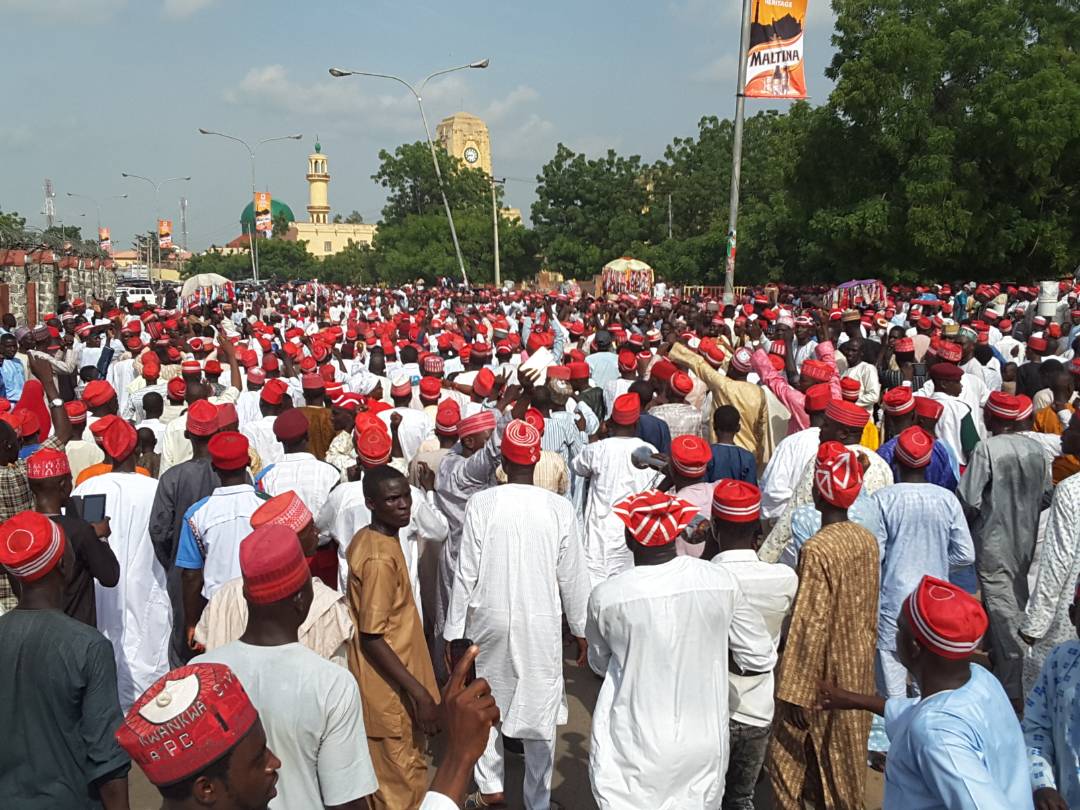In Kano State, there is a probability that what transpired in the February 25 presidential election might translate into victory for the New Nigeria Peoples Party or NNPP in the state’s March 18 governorship election.
In the just concluded presidential and national assembly elections, previously unpopular NNPP flogged the ruling All Progressives Congress or APC and the major opposition, the Peoples Democratic Party or PDP, to win the presidential election in the state with a wide margin.
Many thanks go to its presidential flag bearer, Rabiu kwankwaso, whose political influence through his “Kwankwasiya movement” in the state is accredited for the wave-like victory that also saw the party snatch two of the state’s three senate seats and 17 of its 24 house of representatives seats from the APC.
Interestingly, Kwankwaso moved from the PDP to the NNPP only seven months into the 2023 general election to further his presidential ambitions when it was clear that the PDP would not give him their ticket. His movement to the NNPP brought exposure to the party.
The first time the influence of a single politician translated to a sweeping victory in the state was in the second republic in 1979 when the Peoples Redemption Party (PRP) had Kano as its stronghold due to the influence of Mallam Aminu Kano, a Muslim politician with liberal ideas, including freedom of speech and women empowerment.
The red cap movement
Rabiu Kwankwaso was the governor of Kano State from 1999 to 2003. After losing his re-election bid in 2003, he was appointed the first minister of defence with no prior military background from 2003 to 2007, under the administration of former President Olusegun Obasanjo.
In 2011, he started the most famous political movement in recent times, the Kwankwasiya movement, loosely translated to mean ‘red cap movement’ as its followers wear red hats.
The movement soon gained people’s trust and acceptance in Kano, earning him his second term as state governor from 2011 to 2015.
During the 2019 general election, some people in his political movement sympathetic to the APC turned against him, resulting in the APC sweeping power off the grip of his movement.
The resurrection
It is 2023, and power seems to be back in his hands. This time, in a new style that reflects grassroots political leadership. What continues to endear people to Kwankwaso’s movement was his 2011-2015 economic and educational reforms when he made education free for the indigenes of Kano.
Perceived current misrule of the governing APC seems to make people miss the Kwankwaso days, a reason those who left the movement are returning. They felt a Kwankwaso presidency and influence in Kano might bring brighter days.
Since switching to the NNPP, the Kwankwasiyya movement has gained political strength following former members’ return and the movement’s spread to the grassroots.
APC burial might be possible
With the resurrection of Kwankwaso’s movement and his party’s sweeping of the majority of the Senate and House seats in the state, there is a higher possibility that the party’s governorship candidate, Yusuf Abba, may flog Governor Abdullahi Ganduje’s APC candidate, Gawuna Nasiru, in the March 18 gubernatorial election.
Also, there is hope that the state house may witness a massive influx of NNPP members.
“As clearly shown by what happened in the last election, the NNPP may win Kano gubernatorial [election] and almost all the state house seats in the upcoming polls except if the election is rigged or disrupted,” said Kano-based political analyst, Lukman Abdulmalik.
If the victory happens, it might mark the ‘death and burial’ of the APC in Kano as public distrust against the APC and its state leaders increases.
“In Kano now, the Kwankwasiyya political movement supporters don’t care about the candidates’ competence; they only want their party to gain power again, and the fact is, the NNPP supporters dominate 80% of the people in Kano,” Abdulmalik said.
“Even though Kwankwaso didn’t win any [other] state, he won Kano with almost a million votes, and APC had 513,846 votes. So, there’s a margin of about 400,000 votes between them.”
To understand how deep the Kwankwasiya support has gone, look at the defeat of senator Ibrahim Gaya of the APC, who had been in the senate representing Kano South for about 17 years.
Out of 18 local governments in his district, he won only one, while the NNPP candidate, Kawu Sulaiman, won 17. And finally, out of the 44 LGAs in Kano State, NNPP won 38 while APC won just eight.
“So, you can see the margin,” asked Abdulmalik rhetorically. “The ruling party already knows they will lose the state entirely to the NNPP, so they are bringing up different strategies. The upcoming gubernatorial election would be so interesting in Kano.”
Failure outside Kano
Before the February 25 presidential election, some analysts had speculated that Kwakwaso and his movement’s popularity in Kano might influence voters in several northwest and northeast states.
Kwankwaso once boasted on national television that he had more electoral value than Peter Obi of the Labour Party, dismissing Obi as a paperweight incapable of pulling the required numbers to come ahead of him and the NNPP.
But it turned out that Kwankwaso’s influence did not travel beyond Kano. While he won Kano comfortably, he fell short of getting 25% votes from at least two-thirds of Nigeria’s 36 states, a constitutional requirement to win a presidential election. He also failed to win in any other state.
In the end, Kwankwaso got only 1.5 million votes from across the country, with over 60% coming from Kano.
On the contrary, Peter Obi raked in 6,101,533 votes, won in about 11 states and got the required 25% from 17 states to come third in the presidential race in which Bola Ahmed Tinubu of the APC was declared the winner with 8,794,726 votes and Atiku Abubakar of the PDP first runner up with 6,984,520 votes.





